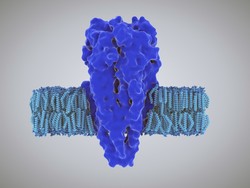Multifaceted calcium sensing receptor
Calcium is one of the most versatile and widely used signalling agents in mammalian cells. Disturbances in calcium signalling are common in many human diseases. The CaSR is widely expressed and serves not only as the main regulator of systemic calcium homeostasis but is implicated also in proliferation, differentiation, and cell death. In addition, impaired CaSR function is encountered in various disorders including, inflammation, cardiovascular diseases, and cancer. To further elucidate the role of CaSR in disease, scientists from the EU-funded Initial Training Network MULTIFACETED CASR (The role of the calcium-sensing receptor (CaSR) in health and disease, implications for translational medicine) network generated a systems biology model to study CaSR-dependent signalling. The work focused on cell proliferation and differentiation in colon, parathyroid, and breast cancer cells, as well as on the role of the CaSR in vascular calcification. Researchers developed cell lines that stably expressed parathyroid hormone (PTH) and CaSR. These cellular tools helped them study the biological processes that regulate PTH secretion and parathyroid tumourigenesis. Additional cell lines with fluorescent calcium sensors facilitated the selection of drugs that acted on specific CaSR signalling pathways. Project results demonstrated that the CaSR influenced the differentiation, proliferation and apoptosis of colon cancer cells, while loss of CaSR expression led to colonic tumour development. These observations indicated that the CaSR acted as a tumour suppressor in colorectal tumours and interventions increasing the expression of the receptor might have therapeutic value. Insight into altered CaSR expression in colon cancer unveiled DNA methylation and microRNAs as the main mechanisms of its silencing during tumourigenesis. Contrary to colon cancer, CaSR had an oncogenic role in breast cancer and overexpression was associated with extensive metastases to the bone. Using tissue-specific CaSR knockout mice, scientists validated the role of the CaSR in the maintenance of blood pressure. This finding highlighted the possibility of developing CaSR-based therapeutics for blood pressure control. Taken together, the results of the MULTIFACETED CaSR study, apart from fundamental knowledge, opened new roads for the therapy of cardiovascular disease and cancer.







